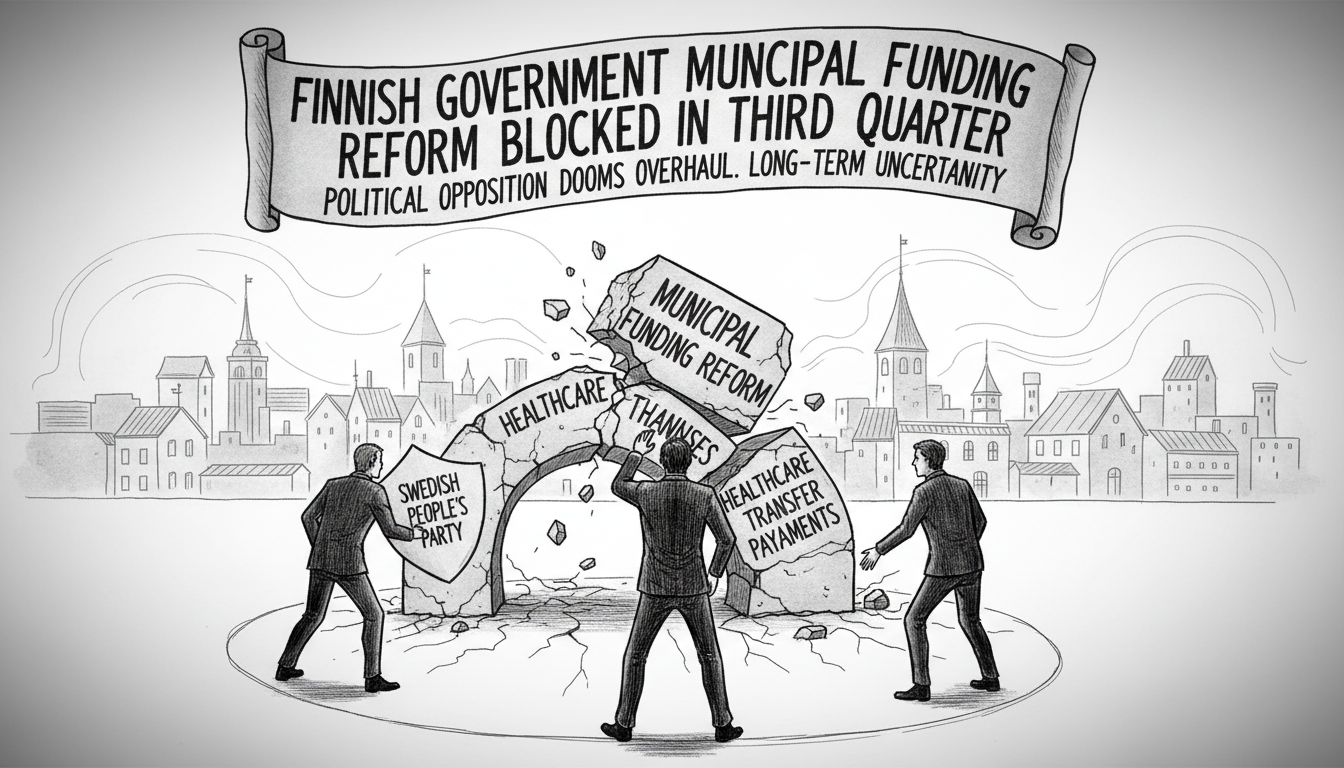Finland's long-awaited municipal funding reform has collapsed after failing to secure political support. The overhaul of state allocation system to municipalities will not proceed during this government term. Local Government Minister Anna-Kaisa Ikonen confirmed the reform's failure on Friday evening.
The proposed changes aimed to modernize how state funds are distributed to Finland's 309 municipalities. These allocations represent crucial financial support for local services including education, healthcare and infrastructure. The current system has been criticized for creating winners and losers among municipalities.
The reform specifically targeted controversial healthcare transfer payments known as 'sote-erät'. These special allocations were introduced during Finland's major healthcare reform to compensate municipalities for changes in their tax base and economy. The payments have created clear divisions between benefiting and paying municipalities.
Wealthy municipalities like Kauniainen, Espoo, Kirkkonummi and Porvoo have received substantial healthcare transfer payments. Meanwhile, regional centers including Pori, Mikkeli and Kuopio have been net contributors to the system. This geographical divide has created political tensions that ultimately doomed the reform effort.
The Swedish People's Party of Finland (Rkp) blocked the proposed changes. The party refused to accept any modifications to the current healthcare transfer system that would substantially alter the status quo. Political observers note that many municipalities benefiting from the current system are located in Rkp's stronghold areas along Finland's west coast.
Expert preparations had concluded that reforming the state allocation system required adjustments to healthcare transfers. The proposed solution involved a change limiter that would cap how much municipalities could gain or lose during the transition. Rkp demanded a limiter that would maintain the current financial balance almost unchanged.
Minister Ikonen had previously promised the reform would be completed during the autumn parliamentary session. The government's original timeline envisioned implementation in 2026, but the schedule was already pushed back by one year before this latest setback.
The collapse represents a significant blow to Finland's local government modernization efforts. Municipalities face increasing responsibilities with outdated funding mechanisms. The current system fails to adequately address regional disparities and changing demographic patterns across the country.
What happens next remains uncertain. The government could attempt to revive negotiations, but with parliamentary elections approaching, time is running short. Municipal leaders now face continued uncertainty about their long-term financial planning. The failure to update the allocation system may force municipalities to make difficult budget decisions in coming years.
This stalemate highlights the challenges of reforming established financial systems in Finland's consensus-driven political landscape. The need for compromise between coalition partners often results in watered-down reforms or complete deadlock. The municipal funding system will now continue operating with acknowledged flaws until at least the next government term.

